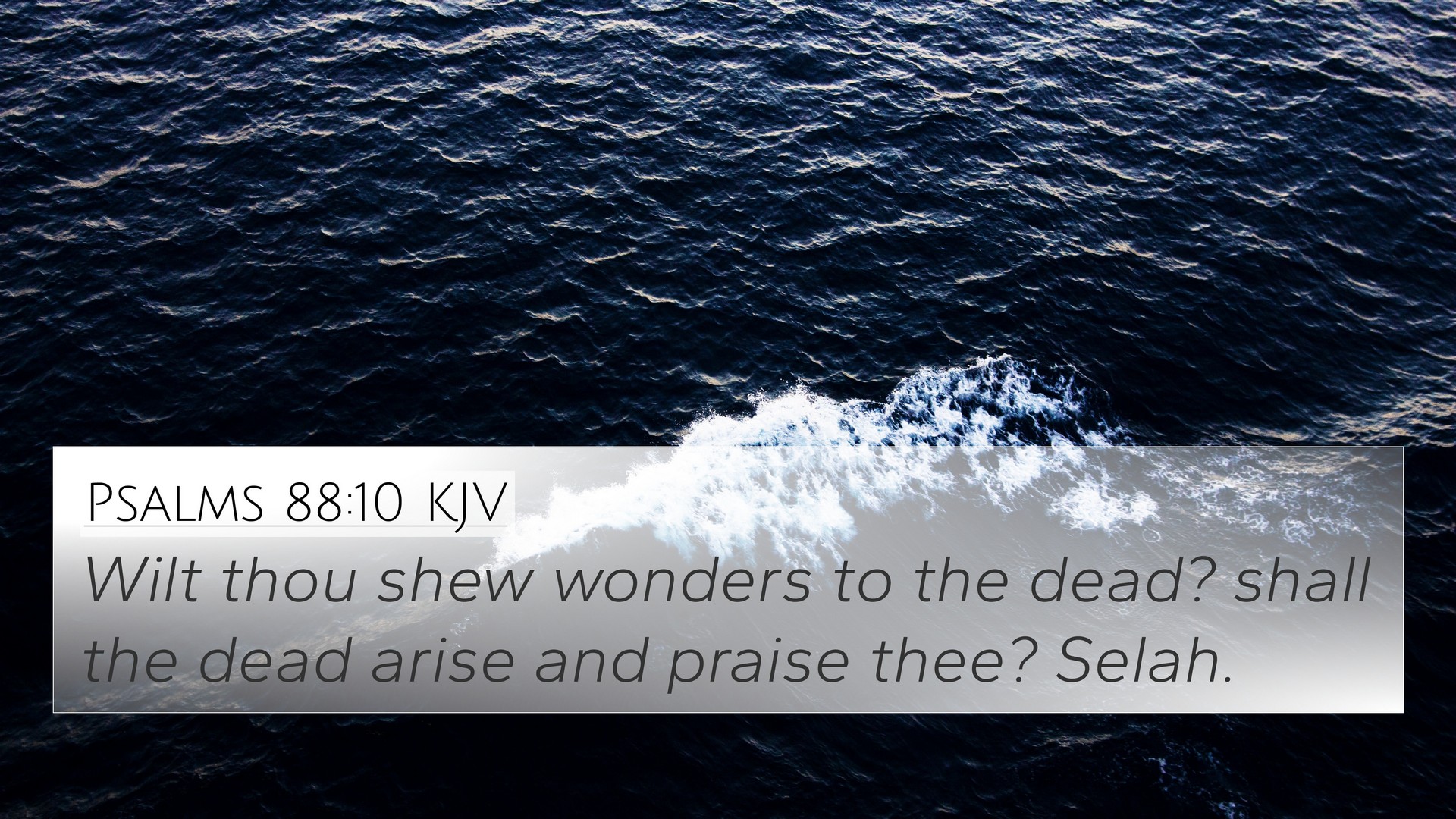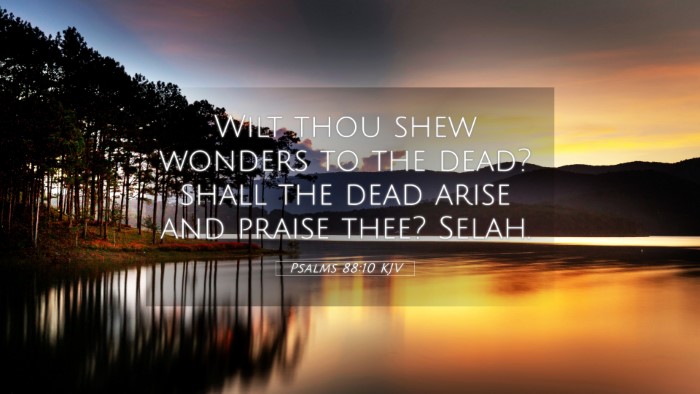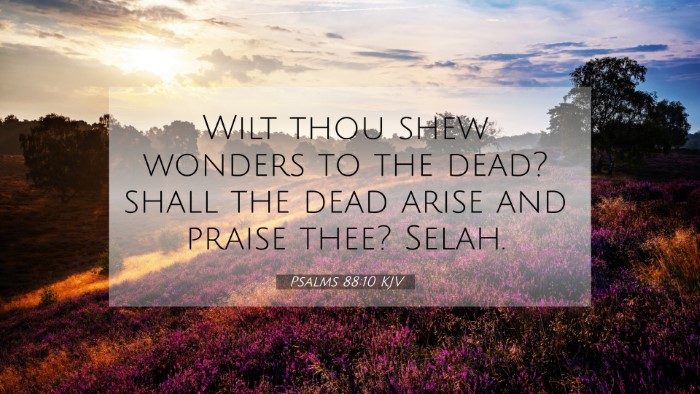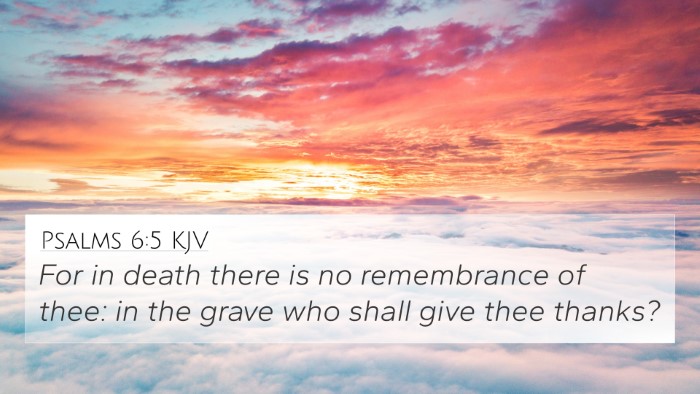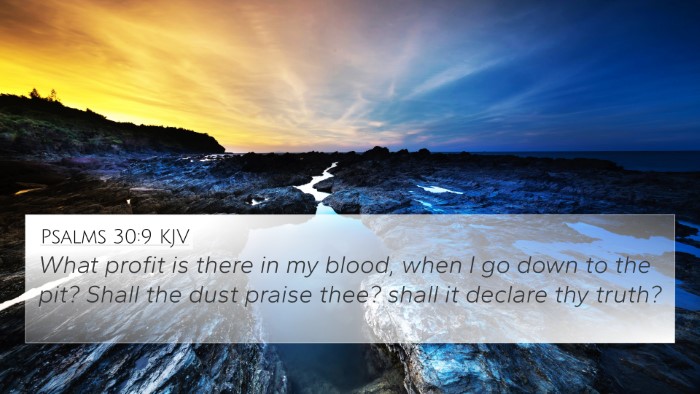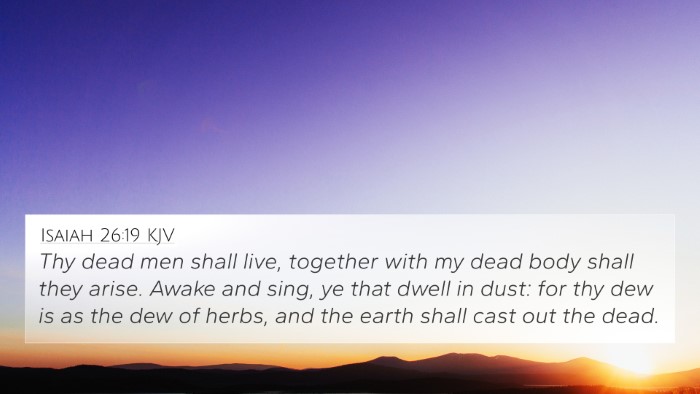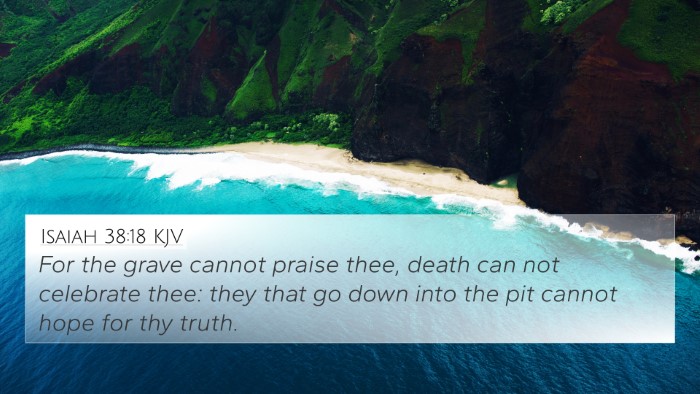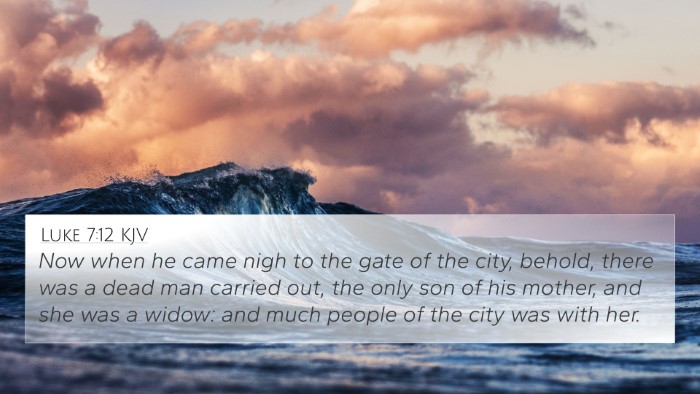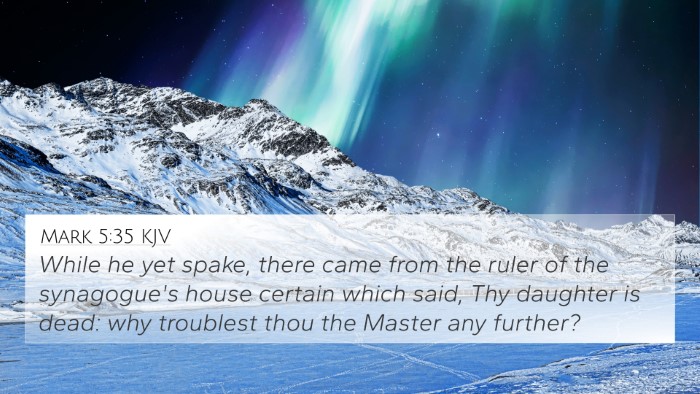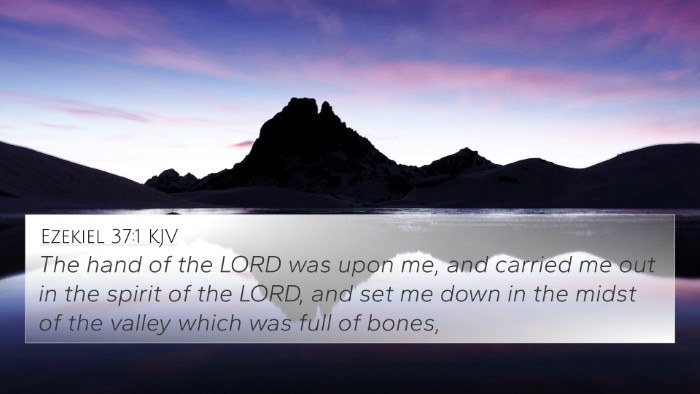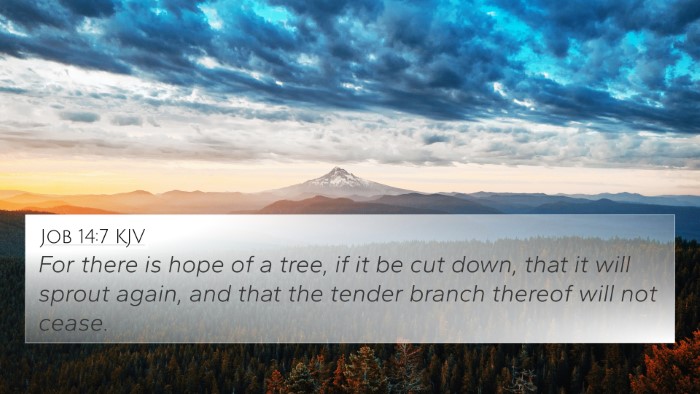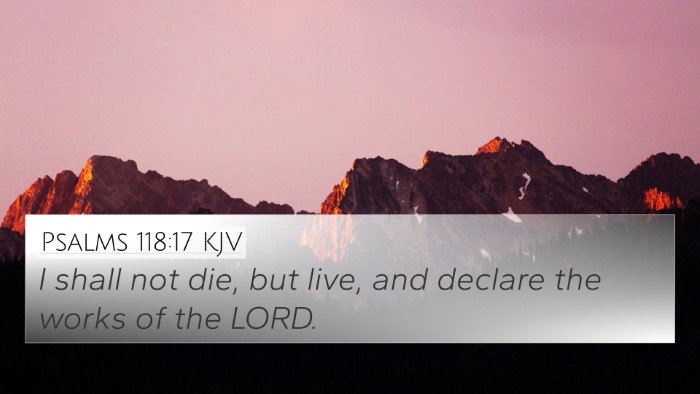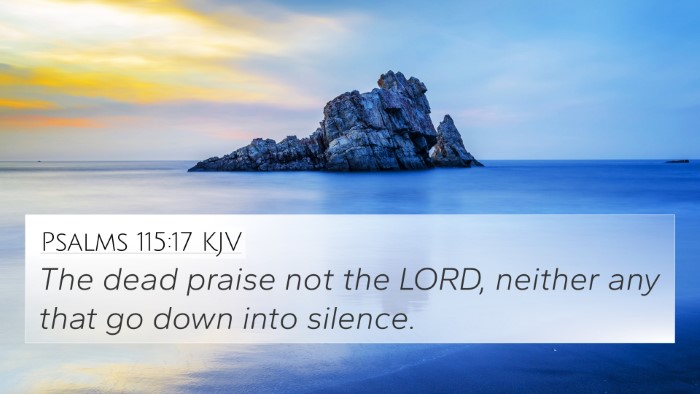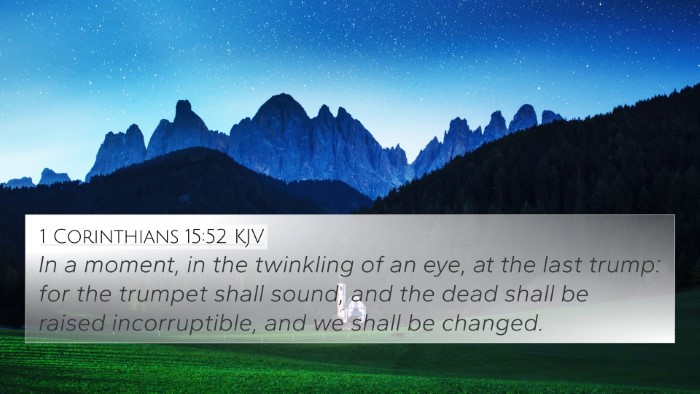Psalms 88:10 - Understanding the Depth of Despair
Psalms 88:10 states, "Will You work wonders for the dead? Will the departed spirits rise and praise You?" This poignant verse captures the despair of the psalmist as he grapples with the depths of sorrow and the finality of death.
Meaning and Interpretation
The verse presents a profound question about God’s power and purpose concerning the dead. It reflects human despair and the longing for connection even in death. Commentators like Matthew Henry, Albert Barnes, and Adam Clarke provide insights into the implications of this verse.
Insights from Public Domain Commentaries
-
Matthew Henry notes that the psalmist's anguish is palpable as he contemplates the absence of praise from the dead. He emphasizes the importance of life and the ability of the living to proclaim God’s greatness.
-
Albert Barnes highlights the rhetorical nature of the question, indicating the psalmist's skepticism about any posthumous manifestation of God’s glory. Barnes points out that the psalmist feels abandoned and questions God’s ability to bring life or praise from those who have died.
-
Adam Clarke elaborates on the cultural understanding of death during biblical times, suggesting that the departed were considered out of reach of divine intervention. Clarke illustrates the despair of the psalmist who sees no hope for redemption or return to life.
Cross-Referencing Biblical Texts
This verse intertwines with various themes throughout Scripture, influencing the understanding of life, death, and divine power. Below are notable Bible verses that relate to Psalms 88:10:
- Job 14:14: "If a man dies, will he live again? All the days of my struggle I will wait until my change comes." This verse echoes a similar despair regarding the mystery of life and death.
- Isaiah 38:18: "For Sheol cannot thank You, Death cannot praise You; Those who go down to the pit cannot hope for Your faithfulness." This reinforces the idea of the dead being unable to participate in the worship of God.
- Ecclesiastes 9:5: "For the living know that they will die, but the dead do not know anything..." A reminder of the limitations placed on the dead.
- Luke 16:26: In the parable of the rich man and Lazarus, a great chasm exists between the living and the dead, showcasing the separation experienced in death.
- Romans 6:9: "Knowing that Christ, having been raised from the dead, dies no more. Death no longer has dominion over Him." A verse that points to the victory over death through Christ, which contrasts the despair in Psalms 88.
- 1 Thessalonians 4:14: "For if we believe that Jesus died and rose again, even so God will bring with Him those who sleep in Jesus." This introduces hope of resurrection, contrary to the psalmist's despair.
- Revelation 20:13: "The sea gave up the dead who were in it, and Death and Hades delivered up the dead who were in them." Here, we see God’s ultimate power over death, a response to the psalmist’s questioning of the dead's ability to praise.
Thematic Connections
This exploration of Psalms 88:10 fits within broader biblical themes of despair, hope, and resurrection. The cross-referencing of scriptures helps illuminate the connections between human experience and divine promise.
Tools for Bible Cross-Referencing
Understanding the relationships between various scriptures requires effective tools. Some recommendations include:
- Bible Concordance: A reference work that lists words or topics and provides scriptural locations for comprehensive study.
- Bible Cross-Reference Guide: A tool pointing to verses that illuminate similar themes or concepts throughout the Bible.
- Bible Chain References: Combines multiple verses linked thematically, showcasing the interconnectedness of biblical texts.
Conclusion
Psalms 88:10 stands as a testament to human struggle with the themes of life and death. Through cross-referencing this verse with others, we can discern a richer understanding of the biblical narrative concerning the afterlife and the hope found in Christ. By examining these connections, we not only appreciate the lament of the psalmist but also find assurance in the promises of God regarding life after death.
